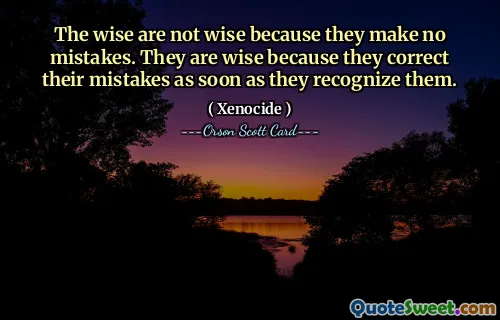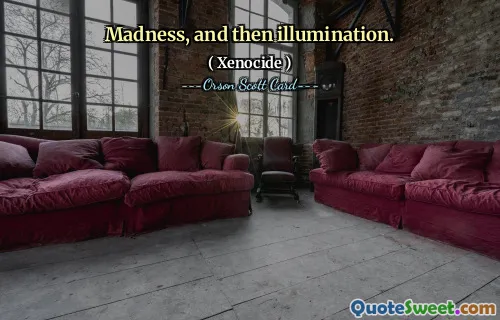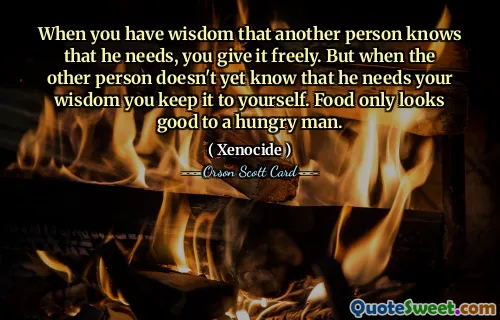
You can deny any sacrifice by claiming that it made the sufferer feel so good to do it that it really wasn't a sacrifice at all, but just another selfish act.
In "Xenocide" by Orson Scott Card, the idea of sacrifice is explored through the lens of altruism versus self-interest. The notion suggests that one can argue against the legitimacy of a sacrifice by claiming the individual felt pleasure in making that sacrifice, thereby categorizing it as a selfish act rather than a true selfless offering. This challenges the commonly held belief that sacrifices are inherently noble and raises questions about the motivations behind our actions. The quote highlights a philosophical dilemma regarding the nature of sacrifice and whether genuine selflessness is attainable. If actions taken in the name of sacrifice are driven by the personal satisfaction they bring, can they truly be considered sacrificial? This invites readers to reflect on the complex interplay between intention, emotion, and morality in human behavior.
In "Xenocide," Orson Scott Card examines the complex nature of sacrifice and prompts readers to consider whether actions taken for others can be genuinely selfless. The quote implies that if a person derives joy from their sacrifice, it could be interpreted as a selfish act, questioning the authenticity of altruism.
This perspective opens up discussions about the motivations behind our actions, inviting a deeper exploration into what it means to sacrifice for someone else. It challenges the assumption that all sacrifices are noble, suggesting instead that one's feelings and desires may complicate the purity of such acts.











